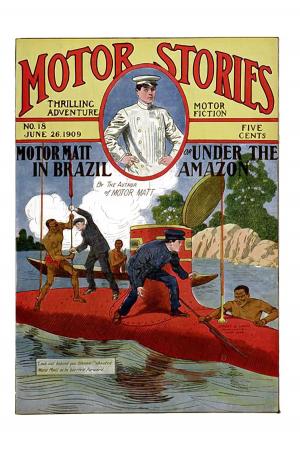| Author: | Horatio Alger, Jr. | ISBN: | 1230000871211 |
| Publisher: | Reading Bear Publications | Publication: | January 2, 2016 |
| Imprint: | Language: | English |
| Author: | Horatio Alger, Jr. |
| ISBN: | 1230000871211 |
| Publisher: | Reading Bear Publications |
| Publication: | January 2, 2016 |
| Imprint: | |
| Language: | English |
Through some conspiracy, the hero of this story was taken from his relatives as a baby and given into the care of a kind woman. Not knowing his name, she gave him her husband's name, Frank Fowler. She had one little daughter, Grace, and showing no partiality in the treatment of her children, Frank never suspected that she was not his sister. However, just prior to her death, Mrs. Fowler related all this to Frank. The children were left alone in the world. It seemed as though they would have to go to the poorhouse but Frank determined to care for them through hard work and thrift.
A kind neighbor agreed to care for Grace for a nominal charge, so Frank decided to start out in the world to make his own way. In large retail stores, a "cash boy" was used to take a customers money to a cashier's desk and return with change. Sales clerks were not trusted to perform this task themselves. This was Frank's first job and, hence, the title of the novel.
Horatio Alger, Jr. (January 13, 1832 – July 18, 1899) was a prolific 19th-century American author, best known for his many formulaic juvenile novels about impoverished boys and their rise from humble backgrounds to lives of middle-class security and comfort through hard work, determination, courage, and honesty. His writings were characterized by the "rags-to-riches" narrative, which had a formative effect on America during the Gilded Age.
Through some conspiracy, the hero of this story was taken from his relatives as a baby and given into the care of a kind woman. Not knowing his name, she gave him her husband's name, Frank Fowler. She had one little daughter, Grace, and showing no partiality in the treatment of her children, Frank never suspected that she was not his sister. However, just prior to her death, Mrs. Fowler related all this to Frank. The children were left alone in the world. It seemed as though they would have to go to the poorhouse but Frank determined to care for them through hard work and thrift.
A kind neighbor agreed to care for Grace for a nominal charge, so Frank decided to start out in the world to make his own way. In large retail stores, a "cash boy" was used to take a customers money to a cashier's desk and return with change. Sales clerks were not trusted to perform this task themselves. This was Frank's first job and, hence, the title of the novel.
Horatio Alger, Jr. (January 13, 1832 – July 18, 1899) was a prolific 19th-century American author, best known for his many formulaic juvenile novels about impoverished boys and their rise from humble backgrounds to lives of middle-class security and comfort through hard work, determination, courage, and honesty. His writings were characterized by the "rags-to-riches" narrative, which had a formative effect on America during the Gilded Age.















